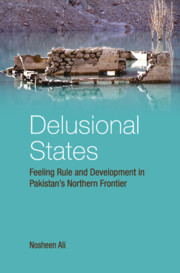Book contents
- Frontmatter
- Contents
- List of Maps and Figures
- Acknowledgements
- List of Abbreviations
- Introduction
- PART I Representation and Repression
- PART II Education and the Politics of Faith
- PART III Saving Nature, Saving People
- 5 The Nature of Development: Neoliberal Environments and Pastoral Visions
- 6 Books vs. Bombs? Humanitarian Education, Empire, and the Narrative of Terror
- Conclusion: The Great Media Game
- Bibliography
- Index
5 - The Nature of Development: Neoliberal Environments and Pastoral Visions
from PART III - Saving Nature, Saving People
Published online by Cambridge University Press: 05 June 2019
- Frontmatter
- Contents
- List of Maps and Figures
- Acknowledgements
- List of Abbreviations
- Introduction
- PART I Representation and Repression
- PART II Education and the Politics of Faith
- PART III Saving Nature, Saving People
- 5 The Nature of Development: Neoliberal Environments and Pastoral Visions
- 6 Books vs. Bombs? Humanitarian Education, Empire, and the Narrative of Terror
- Conclusion: The Great Media Game
- Bibliography
- Index
Summary
As indicated in the introduction, the ecological terrain of struggle is often overlooked in studies of Pakistan as well as of Kashmir, focused as they often are on issues of religion, militarism, and politics. My own work in this book has so far tended to revolve around these topics, albeit highlighting—I hope—some very different representational and ethnographic dynamics emphasizing the political economy and cultural production of feelings, and a particular emphasis on faith-based and poetic struggles. By shifting my attention now to political ecology and international development, I wish to further my analysis of the impact of transnational politics in Gilgit-Baltistan and continue highlighting less-understood struggles that shape life in ‘conflict zones’. This is significant not only in and of itself—to understand more deeply the conditions of subjection and change—but also to unsettle hegemonic expectations which prescribe that the ‘other’ be seen through flattened and familiar narratives. Hence, by broadening our view on society and politics in Pakistan and Kashmir, I hope to unsettle the perniciously rigid understandings of the ‘social’ that often dominate the study of these contexts.
In this vein, this chapter examines nature, land, and livelihood as terrains of state-making and struggle in Gilgit-Baltistan. As demonstrated in Chapter 1, landscape representations of regional spaces such as Gilgit-Baltistan are integral to realizing the nation-state as they have come to signify the eco-body of the nation—its physio-ecological essence and epitome. I now examine how transnational conservation projects service this process of ecological state-making by actualizing the eco-body on the ground, and producing the region of Gilgit-Baltistan as a manufactured space of nature. Gilgit-Baltistan has thus become a site both for nationalist valorizations of its ‘natural beauty’, as well as international desires for rendering it a pristine natural area.
Over the last 30 years, almost 40 per cent of the territory of Gilgit-Baltistan has been converted into government-owned protected areas, in the form of national parks, wildlife sanctuaries, game reserves, and hunting areas. Indeed, it is not unusual to hear that state authorities wish to transform the biodiversity-rich Gilgit-Baltistan into a ‘living museum’ for wildlife. This vision has been critically supported and shaped by international conservation NGOs, particularly the International Union for Conservation of Nature (IUCN) and the World Wide Fund for Nature (WWF), both of which have a major presence in the region.
- Type
- Chapter
- Information
- Delusional StatesFeeling Rule and Development in Pakistan'S Northern Frontier, pp. 195 - 230Publisher: Cambridge University PressPrint publication year: 2019



